On the afternoon of June 23, theFirst Luojia InterdisciplinaryForum of Urban Design and Information Management washeldat the School of Urban Design, Wuhan University. The Forum,with the theme ofDigital and Real Integration Space of Urban and Rural Areas,was co-organized by the School of Urban Design and our School.
People attended the Forum were as followings:
Zhigang Li, Professor, Dean ofthe School of Urban Design, Wuhan University,
Qiang Niu, Professor, Director of the Department of Urban Planning,School of Urban Design, Wuhan University,
Jun Deng, Associate Professor, Director of the Department of Design,School of Urban Design, Wuhan University,
Teng Xu, Associate Research Fellow at the Department of Architecture,School of Urban Design, Wuhan University,
Wei Lu, Professor, Dean of the School of Information Management, Wuhan University,
Jiang Wu, Professor, Associate Dean of the School of Information Management, Wuhan University,
Tingting Jiang, Professor, Department of Information Management Science, School of Information Management, Wuhan University,
Ziyang Weng, Associate Professor, Department of Publishing Science, School of Information Management, Wuhan University,
Xiaoliang Shen, Professor, Department of Information Management Science, School of Information Management, andMengyun Xie, Lecturer, Department of Design,School of Urban Design, presided over the Forum.
In his speech at the Forum, Wei Lu pointed out that the interdisciplinary cooperation between the two schools has made substantial progress, and the joint holding of the Forum was an important achievement after the last meeting between the two sides. This Forum not only embodied "urban-rural integration" and "digital-real integration", but also represented the "interdisciplinary integration" of the two schools. He hoped that the collision of thinking in the Forum would have a positive impact on the discipline development of the two schools and the integration of urban and rural areas.
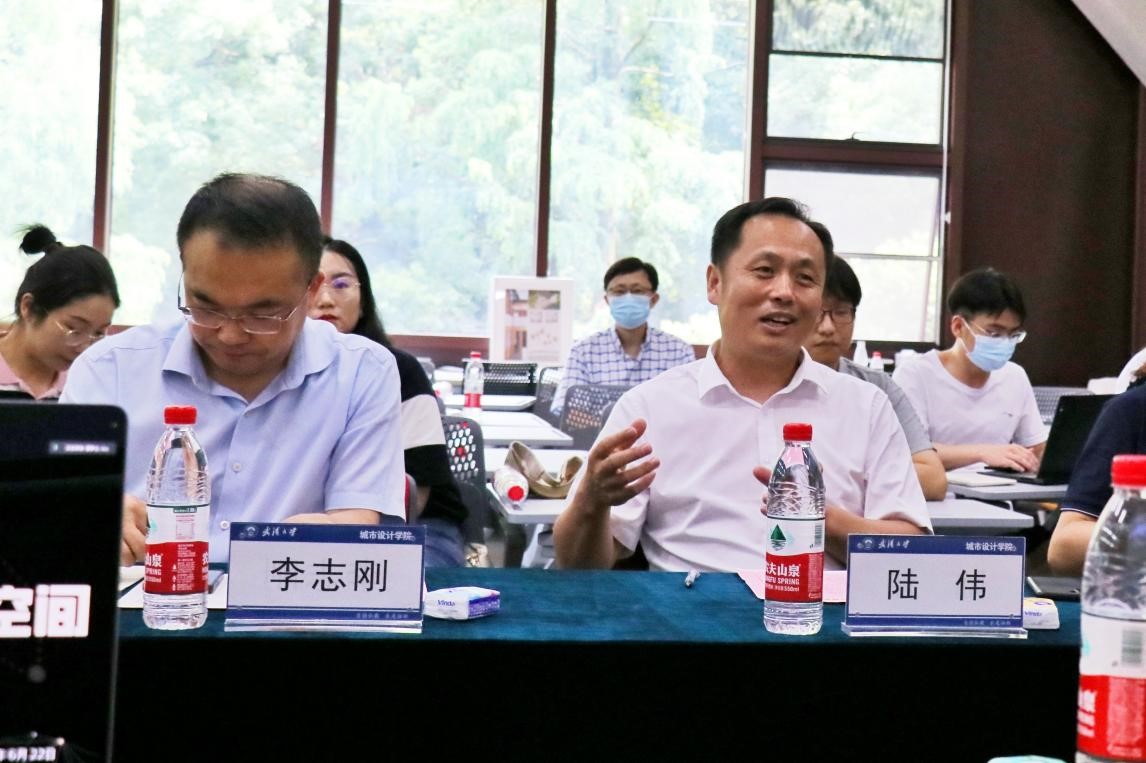
Zhigang Li pointed out that the Forum was the implementation of the strategic cooperation agreement and plan of the two schools. As an important activity with young teachers of the two schools as main participants, this Forum took “digital and real integration space of urban and rural areas” as the topic, and the discussion on such topics as “virtual and reality” and "digital and real integration" is a very advanced and innovative topic at present, which was in line with the development trend of various disciplines and the development demands of the state and local governments. It was expected that cross-talks would achieve good results.
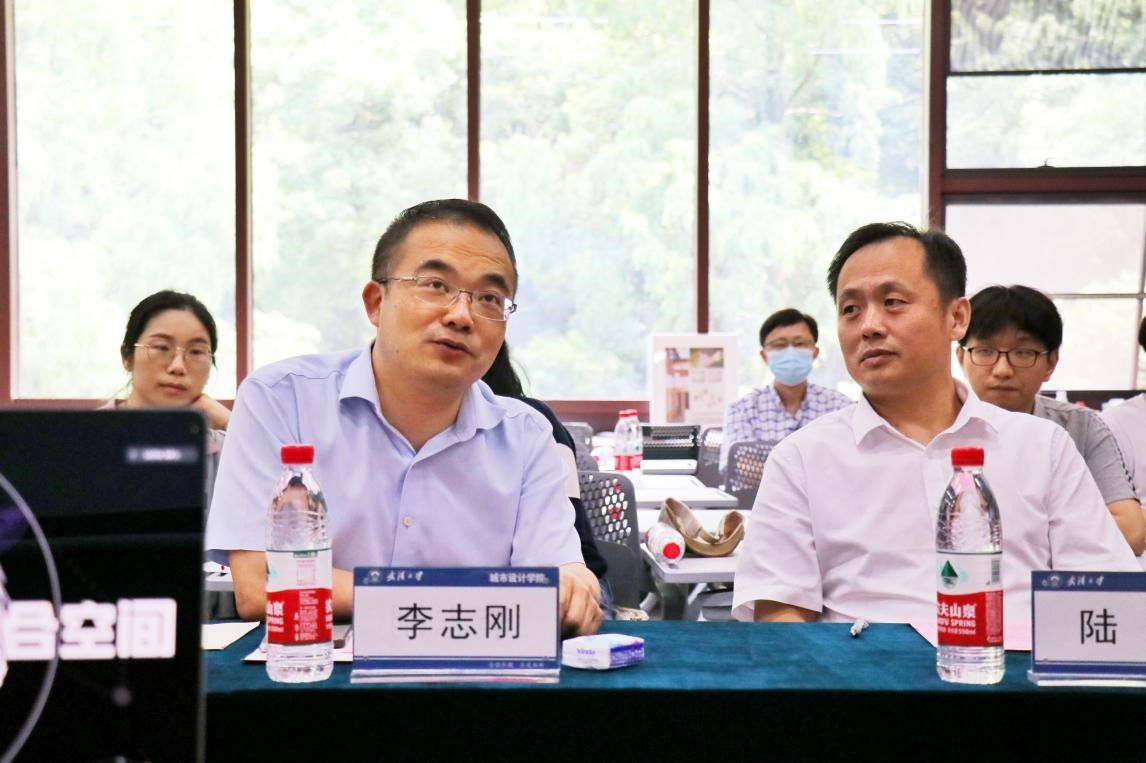
In the dialogue session between scholars, Jiang Wu made the first sharing. From the perspective of 3D space, he believed that urban-rural integration would depend on the information physical social system, which integrates information space, physical space and social space to realize human interaction with nature and cognition and transformation of the world. Metaverse not only creates “integrated wisdom” and create a new human civilization in the space of digital and real integration, but also creates smart city and digital village via the integration of virtual and reality, breaking the gap between time and space, promoting the integration of urban and rural areas and helping rural revitalization.
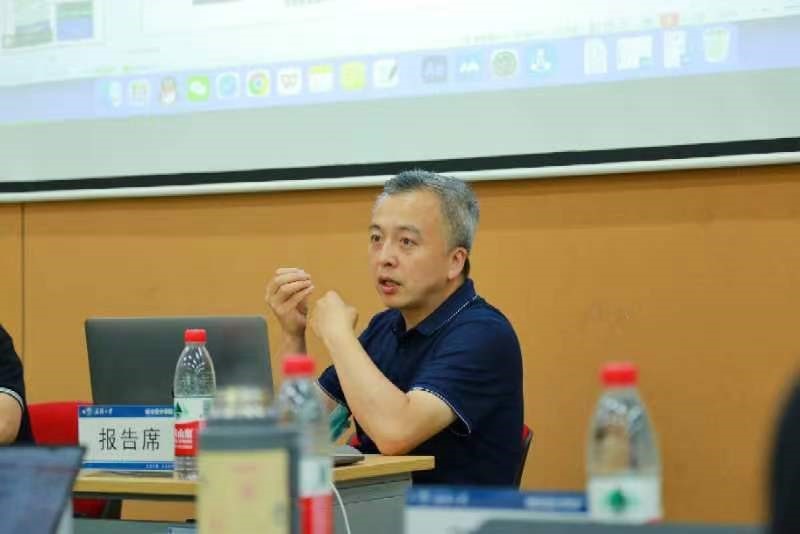
Qiang Niu, believed that the concept of Metaverse provides a new theoretical framework for the integration of urban and rural areas. The division of the three spaces can not only help solve the technical problems of urban and rural space, but also integrate "wisdom" into urban and rural space planning and management.
Qiang Niu's sharing started from the online and offline empowerment of urban-rural integration development, and pointed out that the advantages of online and offline channels are complementary and highly coordinated, which helps to realize the integration of virtual and real situations and achieve the matching of supply and demand. The significance of "online and offline" lies in providing new opportunities for regional economic development, providing new opportunities for solving urban and rural problems such as poor environmental quality, few development opportunities and market threshold, and contributing to the equalization of urban and rural life quality. He also further demonstrated the current process of "online and offline" empowering urban-rural integration and development through big data analysis such as catering, online car-sharing, social and mobile office.
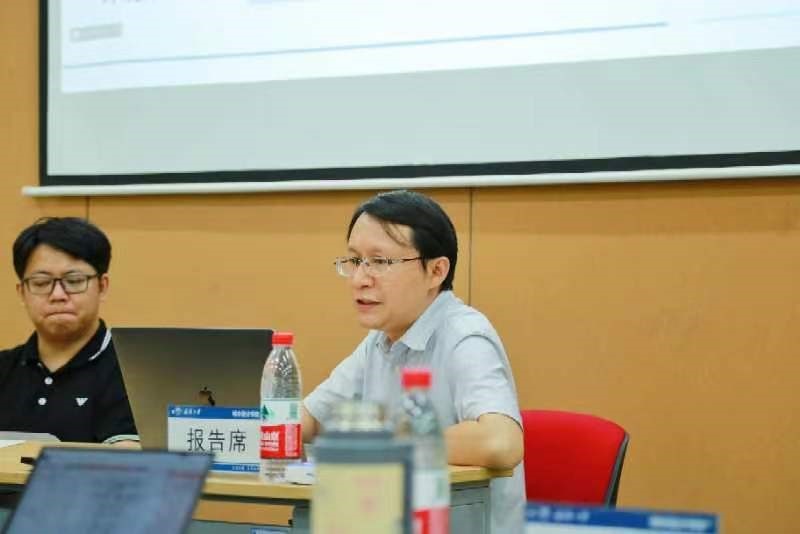
Ziyang Weng pointed out that this research was very interesting. The larger the data, the more likely it is to see some new research results. We could combine new samples and larger data to continue the research.
In Ziyang Weng's sharing, the research on the evolution of agricultural knowledge in ancient China was introduced. Through modern information management technology, he combed the image resources of humanities and historical semantics in ancient agricultural books, and carried out the data infrastructure work of agricultural books distributed in the knowledge evolution scene. In addition, he further combined ancient books, archives and images with GIS technology platform to realize the spatio-temporal digitization of agricultural land, and endowed the research on the local distribution of ancient agricultural books with the intelligent identification of map information and GIS labeling system.
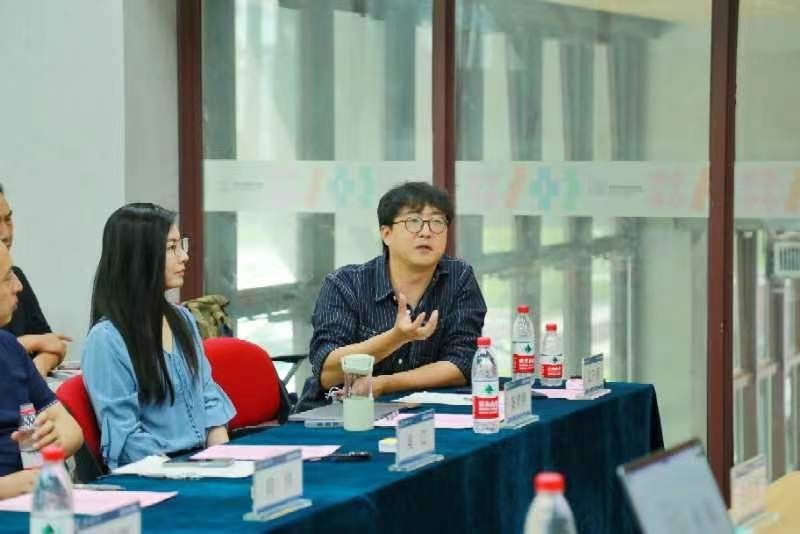
Teng Xu pointed out that the research was very thoughtful and practical, and the compilation of history books combined with images was realistic and easy to understand. Regarding the restoration of historical buildings, it is relatively easy to restore geographic information, but the principle of building details is more complicated.
Teng Xu's theme sharing from the general scientific research path of "problem-method-data-analysis-explanation", put forward the idea of WXBD technology platform architecture. Through in-depth study of historical documents, images and other materials, the image and personality of historical figures can be restored, important historical moments can be reproduced by historical timeline, and a "digital twin" scene data model can be constructed by using cloud processor to realize immersive observation and experience of historical stories. He also introduced the idea of WXBD technology application scenario in detail.
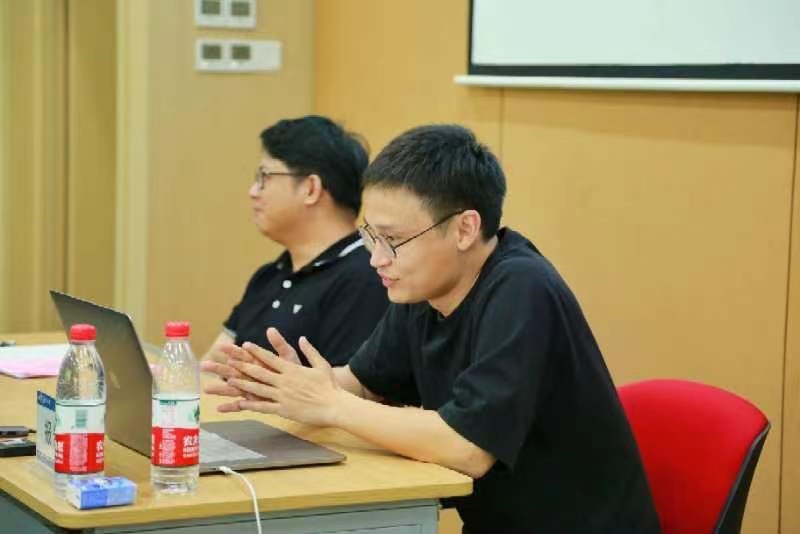
Tingting Jiang pointed out that this sharing was very interesting, and the application of WXBD technology helps to arouse users' interest, and enables young people not only to get entertainment from it, but also to learn some knowledge from it, so as to realize cultural inheritance.
From the perspective of people-orientation, Tingting Jiang introduced the trinity digital memory theoretical framework of "human-memory-technology" and the development trend of digital memory oriented to the interaction between human and intelligence. In addition, the "user experience measurement method system" can make use of computer software tools, observation means and equipment of psychology and neurobiology to accurately quantify user behavior and psychology in the process of real-time interaction. Through behavior tracking technology, psychological measurement technology and physiological measurement technology, we can realize all-round user observation technology, thus constructing "memory garden".
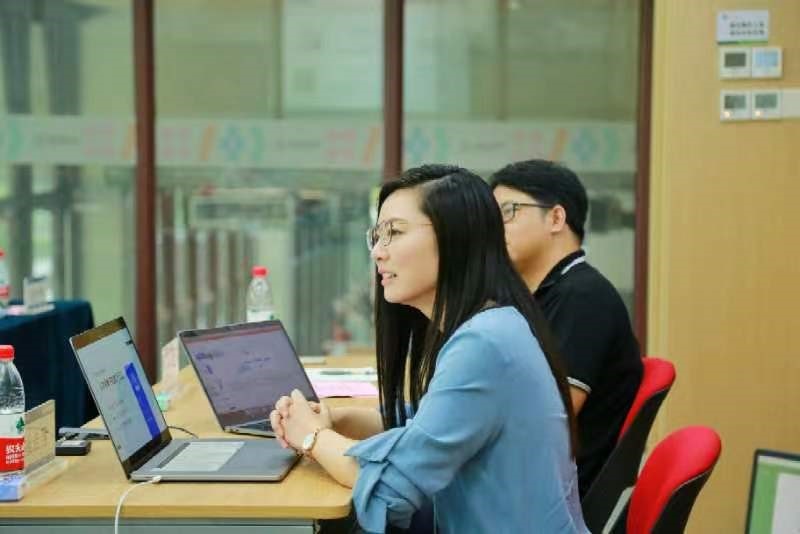
Jun Deng pointed out that the theory and conception of digital memory were very enlightening. Digital memory includes personal and public memory, and the multi-sensory interaction in the report is related to both personal and public digital memory.
Jun Deng pointed out in the theme sharing that "designer" had developed from the original "coordinator of production relations" to "service provider". He believed that designers should not only have four responsibilities of innovation, rationality, feasibility and people-oriented, but also have "ecological responsibility". Through the case of the preservation of the bishop's historical memory in Wuhan University, he realized the preservation of the lost historical and cultural memory. Through the detailed introduction of Hanshui brand design case and Wuhan city manhole cover design case, he showed the process of how his team excavated urban culture and achievements.
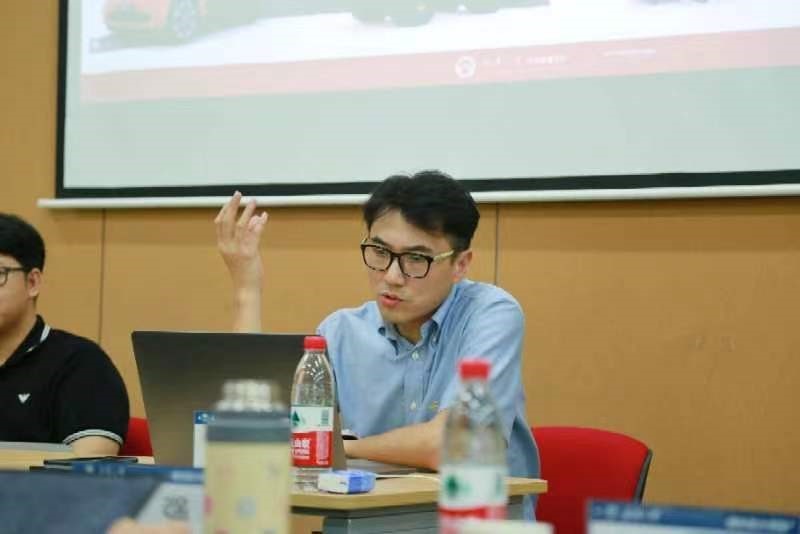
Jiang Wu pointed out that art and technology have a dialectical relationship of unity of opposites. The combination of art and technology brings new development opportunities for design, and art and technology are organically unified and highly integrated through design.
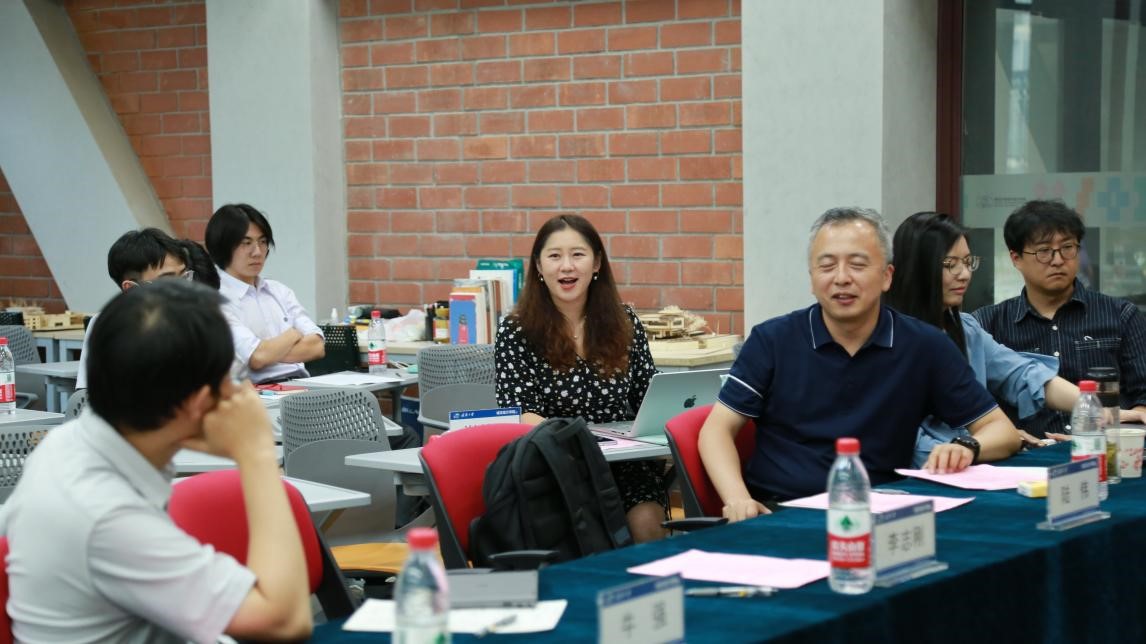
Xiaoliang Shen made conclusions of this Forum. He pointed out that this Forum was not only a wonderful collision of young scholars' thoughts in the two schools, but also a vivid interpretation of fine academic tradition of blending arts and sciences in Wuhan University. It is expected that the two schools would further strengthen cooperation and seek common development in the future, and more cooperative research results would be achieved in the future. The Forum ended successfully in a harmonious atmosphere of communication.